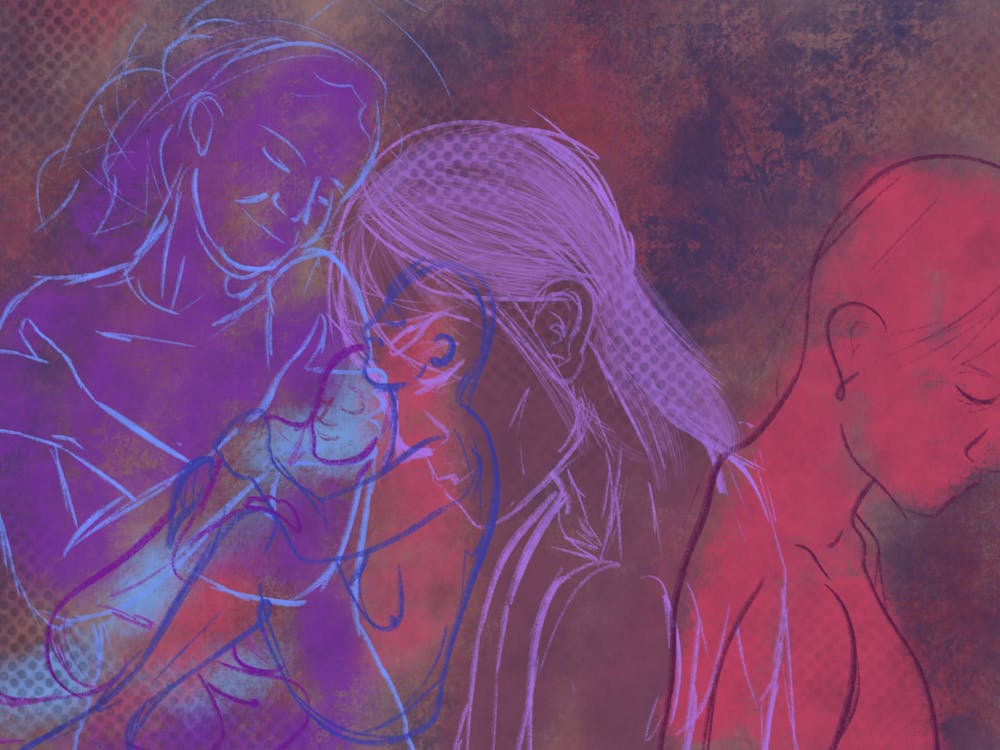I don’t read for pleasure nearly as much as I should. Last semester, most of my time was spent leafing through textbooks, course packets or required classics, so I could argue that I simply didn’t have the time. But if I’m being perfectly honest, the reason I stopped reading is because it wasn’t providing the escape I craved anymore. All the contemporary fiction I read detailed one trauma after another. Even worse, they all seemed to be based on true stories.
In a society that glorifies the stereotype of the tortured artist, it is incredibly difficult to assume the label of an author at a young age. However, as an aspiring, or at least dabbling, writer of short stories, I find this shift incredibly disheartening. Young authors are forced to struggle with the question “what could you possibly have to write about?” It seems unfathomable that any normal young person could have anything meaningful to say.
The proliferation of this twisted and tragic fiction — which I witnessed in my ENLT seminar last semester, as our material covered everything from rape to fratricide — leads writers to believe the public will only be interested in reading their works if they tell stories about their own personal catastrophes. I remember reading James Frey’s then-memoir “A Million Little Pieces,” which detailed his painful and heart-wrenching time in a rehabilitation facility, and the dramatic fallout that occurred when he admitted large parts of the book had been exaggerated or fabricated. Frey’s readers — and the media — were outraged.
In my own life, I see my apparent lack of misfortune as a setback in my artistic career. I am discouraged when everything I read seems to confirm the fact that tragedies are necessary to be a great writer. I went through a phase during which I stretched the limits of my prose far beyond what I knew, or could even imagine. Suddenly I was writing about hopeless runaways and men in horrible extra-marital affairs. Understandably, my stories suffered.
Unfortunately, the glorification of dysfunction in contemporary fiction does not appear to be slowing down anytime soon, as current events only seem to add more fuel to this disheartening fire. However, as both a writer and a reader, I can’t help but see the marriage of these two roles as an opportunity to make the tiniest step in a different direction. Maybe by encouraging others to do the same, I can feel less dread and more joy as I begin a new book.
Though the idea of “writing what you know” once seemed incredibly restrictive to me, I now see the potential in my everyday experiences, from people I observe in my small town to relationships with life-long friends. I have stopped seeing writing what I know as a limitation, and instead use it as a tool to make my stories more relatable. I would encourage any aspiring author or poet to try writing what they understand.
Though my and other young authors’ experiences may be limited in the grand scheme of things, we can still offer a wealth of wonderful insight into everyday events without delving into the world of tragedy and misfortune. There is so much power in describing a family scene that reminds a reader of Christmas dinner at home, or detailing the post-graduate struggle that many college students have face. The choice to write from experience and understanding may seem daunting as we write under the shadow of so many famous fantasies and tragedies, but I assure you, in the end, the choice to be real is a rewarding one.
Kristin’s column runs biweekly Tuesdays. She can be reached at k.murtha@cavalierdaily.com.





